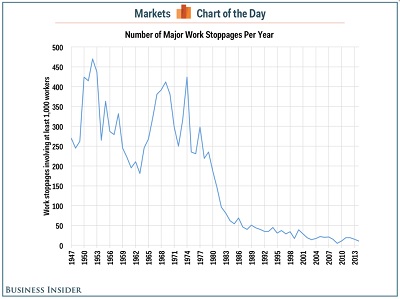“So, how are your Job Descriptions (JDs)?”
Ugh! It’s the question we hate to get asked because we know they suck! There’s only like five companies in the world that have good job descriptions and that’s because they only had to hire like three different kinds of people. Most of us are stuck with JDs written in the 1970s, and while we know they suck, we can’t seem to find anyone to write a better one.
By “anyone” I mean the hiring managers, who usually ask for the ‘latest’ JD we have. We blow the dust off Mr. 1970 and send it along. To which the hiring manager goes, “yeah, that’s about right.” You then send her the candidates you get from the sucky job description and she says, “these people aren’t even close!”
Shocking…
Sucky job descriptions are like a right of passage for HR pros. I can’t tell you how many corporate meetings I’ve been in when the topic of conversation was somehow swayed to JDs and it always ended with, “we should hire an intern this summer to redo all those.” Which never happens. Even the interns know how bad of a job that is!
The real problem doesn’t have to do with HR, but we own it because we own the bible of JDs for the organization. Obviously, hiring managers should own their own JDs for their departments, but most just won’t do it, or don’t care to do a good job until they can’t find anyone for their open position. Talent Acquisition wants to get all ‘cute’ with them and turn them into marketing commercials, which could be cool if done right, but they also suck at it!
HR is the worst of all to write JDs because they turn them into something SHRM would have an HR boner over, but no one else in their right mind would ever read. It becomes of a game of how many acronyms can shove onto a piece of paper and for gosh sakes don’t forget the say if it’s “salary” or “exempt”. I mean who would apply for a job unless they know that data?!?
ATS vendors and many of the suites have tried to solve this by auto generating the most boring JDs known to the history of man for you to just cut and paste. The only good thing about these systems is they give you someone to blame for how sucky your JDs are. “It’s not us, it’s this crappy software they make us use!”
Some Silicon Valley companies attempt to have “cool” job descriptions and titles, but really how cool can you get with “Brogrammer” and “Coding Ninja”? It’s like watching your high school robotics team try and pick up the cheerleaders. You root for them, but in the end you know it’s not happening.
What can you do?
I like in-take meetings. HR and Talent Acquisition pros hate these because it forces them to spend quality time with hiring managers, but they work. A funny thing happens when you sit in front of a hiring manager for more than 45 seconds. They begin to really talk and tell you what they need. Not the bullet point stuff, your 1970 JD already has that, but the real stuff they want. The stuff that gets people hired and gets the req off your desk.
We all have sucky JDs. It’s nothing to get embarrassed about. I would have a contest and reward the suckiest JD in our company as a kickoff to making better ones. Have fun with it. Embrace it. Just do something to stop it!

